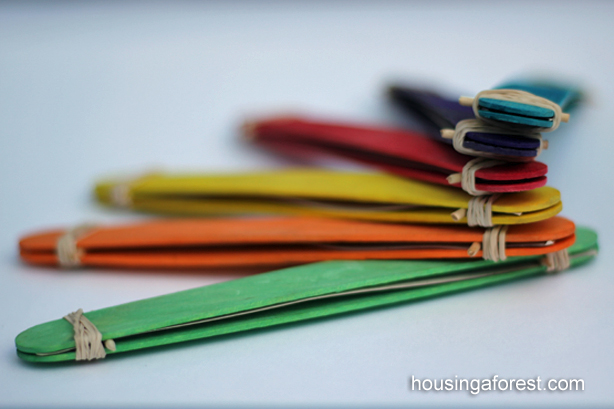Whether you've been singing for years or have only just started taking vocal lessons, it is important to remember to do things properly. Much like exercise, singing should be done gradually and in moderation. You wouldn't go to the gym for five hours once a week and expect the same results as you get going once a day for 30 - 45 minutes, would you?
Singing is exactly the same. Singing too loud or for too long can cause damage that could potentially lead to more serious issues later down the road.
So here are some simple tips to make you a better vocalist than you already are!
1. Train your voice like an athlete trains for a sport. Practice in moderation, and don’t push yourself too hard -- you’ll negate any positive results by pushing too hard! Also as an athlete would, be sure to warm up before a performance/practice and cool down after. Warming up helps stretch your vocal chords and prepare them, and cooling down helps to not strain them with a sudden halt in singing.
2. Be YOU. If you try to copy a voice you like on the radio, not only could that lead to damage (your voice might not be able to physiologically handle their range, tone, etc. even if it feels comfortable!) but the radio stars are already making money for their voice -- let YOUR voice ring out!
3. Pace yourself. If you practice correctly and in a good moderation, you’ll notice your skills and duration enhance over time. This is the correct way -- NOTHING that takes hard work can miraculously happen over night. Everything takes time, practice, and moderation.
4. Avoid stress and trauma on your vocal chords. Try not to scream, yell, or strain your vocal chords on a regular basis. And yes, Husker fan vocalists, that means you too!
5. Hydration, hydration, hydration! Drink enough water. This is an important every-day habit to have, but it will also help your vocal chords out and they won’t get “dry” as fast when you’re in the middle of a performance!
And as a side note with the hydration tip -- from personal experience, I've found I perform long programs better when I have a bottle of water off to the side that I can take a sip from in between songs or during long breaks in the music. Contrary to some beliefs, this doesn't look unprofessional -- quite the opposite, it shows you take your talent seriously. Athletes drink water constantly throughout big games, pop stars go through water bottles extremely fast on stage -- so YOU as a vocalist can drink water throughout your performance as well!
Singing is exactly the same. Singing too loud or for too long can cause damage that could potentially lead to more serious issues later down the road.
So here are some simple tips to make you a better vocalist than you already are!
1. Train your voice like an athlete trains for a sport. Practice in moderation, and don’t push yourself too hard -- you’ll negate any positive results by pushing too hard! Also as an athlete would, be sure to warm up before a performance/practice and cool down after. Warming up helps stretch your vocal chords and prepare them, and cooling down helps to not strain them with a sudden halt in singing.
2. Be YOU. If you try to copy a voice you like on the radio, not only could that lead to damage (your voice might not be able to physiologically handle their range, tone, etc. even if it feels comfortable!) but the radio stars are already making money for their voice -- let YOUR voice ring out!
3. Pace yourself. If you practice correctly and in a good moderation, you’ll notice your skills and duration enhance over time. This is the correct way -- NOTHING that takes hard work can miraculously happen over night. Everything takes time, practice, and moderation.
4. Avoid stress and trauma on your vocal chords. Try not to scream, yell, or strain your vocal chords on a regular basis. And yes, Husker fan vocalists, that means you too!
5. Hydration, hydration, hydration! Drink enough water. This is an important every-day habit to have, but it will also help your vocal chords out and they won’t get “dry” as fast when you’re in the middle of a performance!
And as a side note with the hydration tip -- from personal experience, I've found I perform long programs better when I have a bottle of water off to the side that I can take a sip from in between songs or during long breaks in the music. Contrary to some beliefs, this doesn't look unprofessional -- quite the opposite, it shows you take your talent seriously. Athletes drink water constantly throughout big games, pop stars go through water bottles extremely fast on stage -- so YOU as a vocalist can drink water throughout your performance as well!









